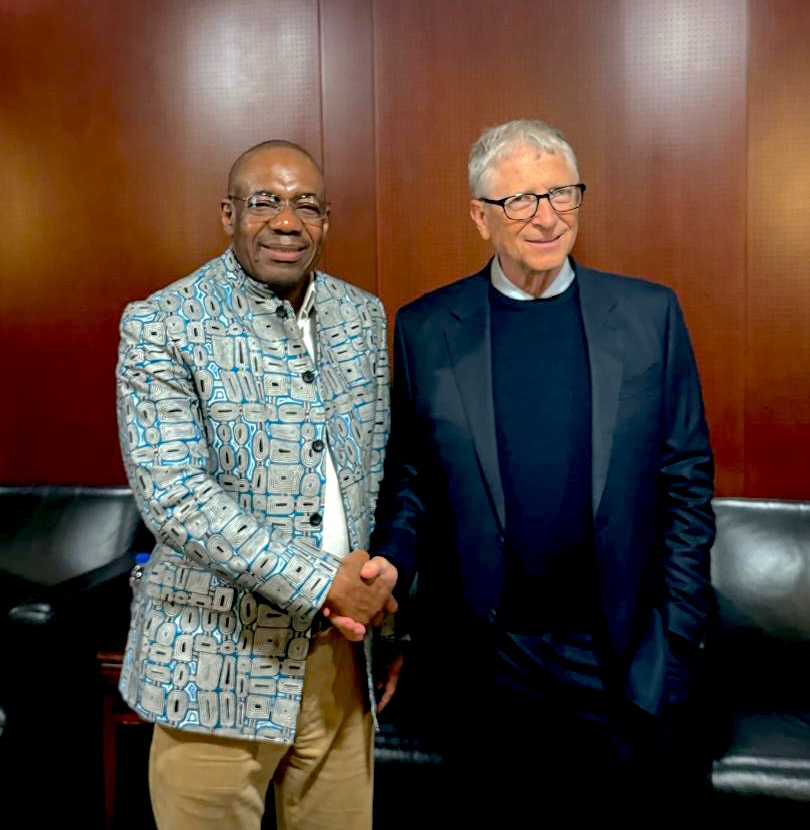
Nelson Mandela Hall, African Union, Addis Ababa, Ethiopia
The REACH Network’s Co-chairs, Honourable Minister Muhammad Ali Pate and Professor Samba Sow, were to the fore in a major event held at the African Union on Monday, 2 June 2025.
Gathering to celebrate 25 years of progress in collaboration with the Gates Foundation, African health leaders heard a panel discussion featuring Professor Sow, followed by a keynote address by Gates Foundation Chair, Bill Gates, during which Minister Pate’s contribution to eradicating polio in Nigeria was highlighted.
25 years of progress
Data in action
In the panel discussion preceding Bill Gates’s landmark speech, Professor Sow took part in a panel discussion alongside Catherine Kyobutungi, Executive Director of the African Population and Health Research Center, and Chido Mpemba, Special Envoy for Youth at the African Union Commission.
Addressing the issue of reduced global funding and shifting priorities in the development landscape, Professor Sow said,
“Global funding shifts are having an impact, and will continue to have a severe impact, if we don’t do something urgently. National health system budgets are already being slashed. Primary healthcare systems are fragmenting, collapsing.
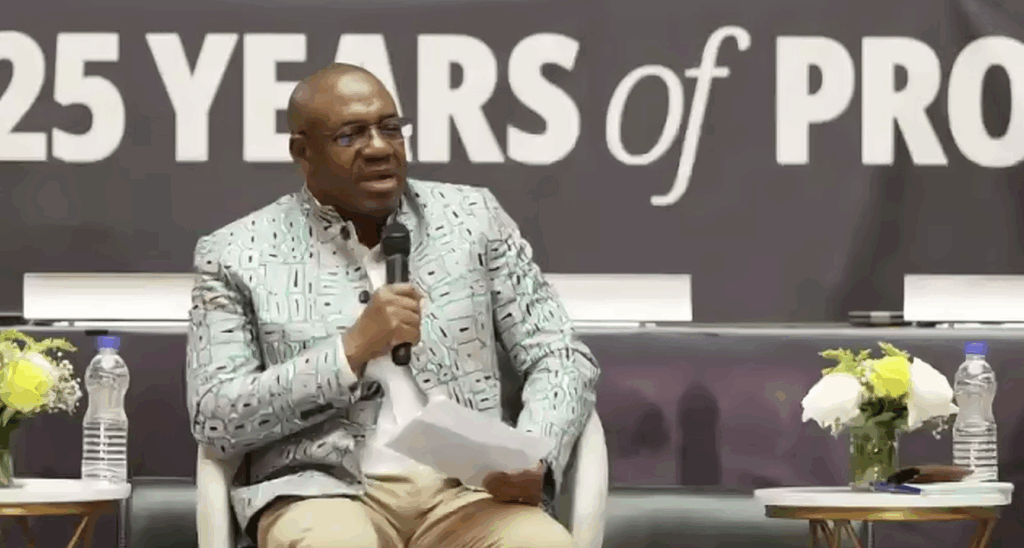
“Communities are not only being left behind, they are being left out altogether, and forgotten, or never even found in the first place. We need urgent solutions. We need resilience, robustness, and community-centred approaches.
“And we need to focus on equity – which means a focus on zero-dose children.
“One great example is the REACH Network that I co-chair with my brother, Honourable Minister Pate from Nigeria. We want to reach the unreached and bring interventions to children and communities who may never have had contact with healthcare in the past.”
A message for the Gates Foundation
Speaking after the event, Professor Sow said, “The Gates Foundation’s accomplishments are numerous and world-changing, and it is absolutely right that we celebrate those and give thanks for their incredible partnership over the last 25 years. The REACH Network is proud to have the Foundation as its core partner.”
He also suggested the course future partnership might take:
“If the Foundation wants to succeed in this next chapter, it must go beyond funding projects to investing in leadership: trust African ministries and institutions to lead, not just implement, and build systems, not silos, back real proximity, not just presence.“Because when we invest in people, platforms, and partnerships that deliver trust, we don’t just save lives, we change futures.”
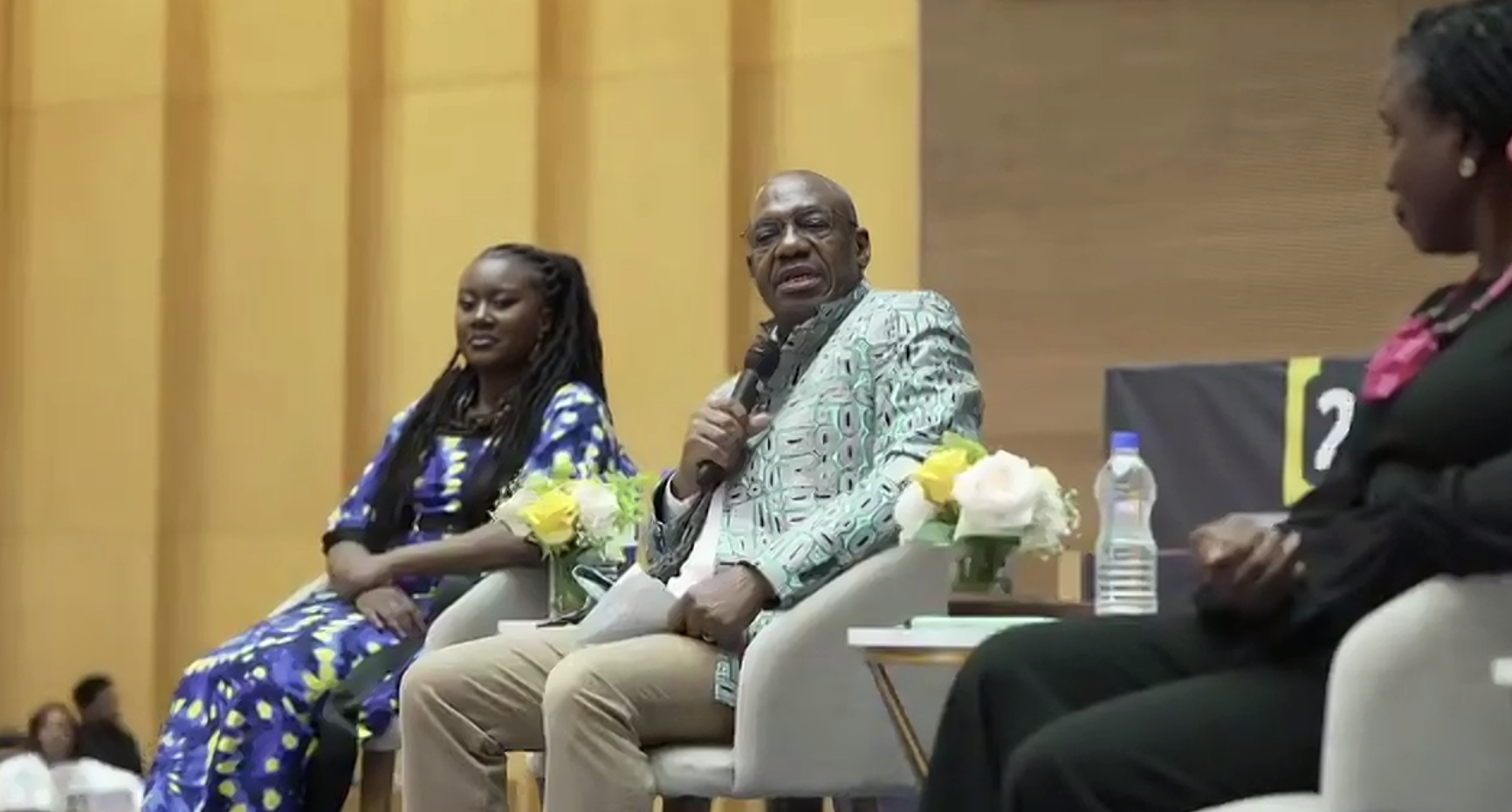
A keynote for child survival
In his keynote address, Bill Gates placed child survival at the very top of his ambitions for the next 20 years, during which he will distribute the vast majority of his immense fortune via his Foundation.
“What is Africa’s greatest asset? By far, it’s the people,” he said.
“What we’ve learned [over the last 25 years] is that helping the mother be healthy and have great nutrition, before she gets pregnant, while she’s pregnant, and then the children themselves, in those first four years, makes all the difference.
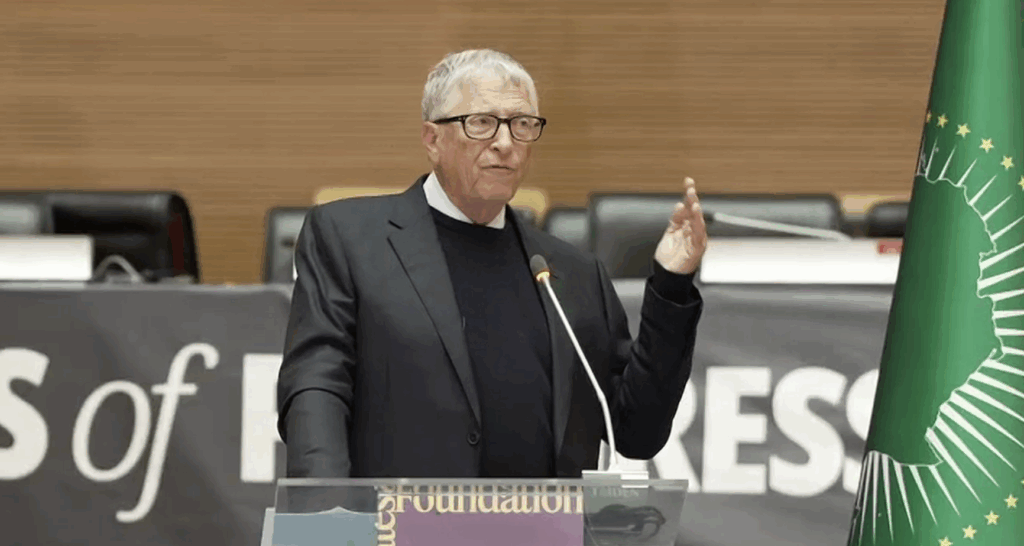
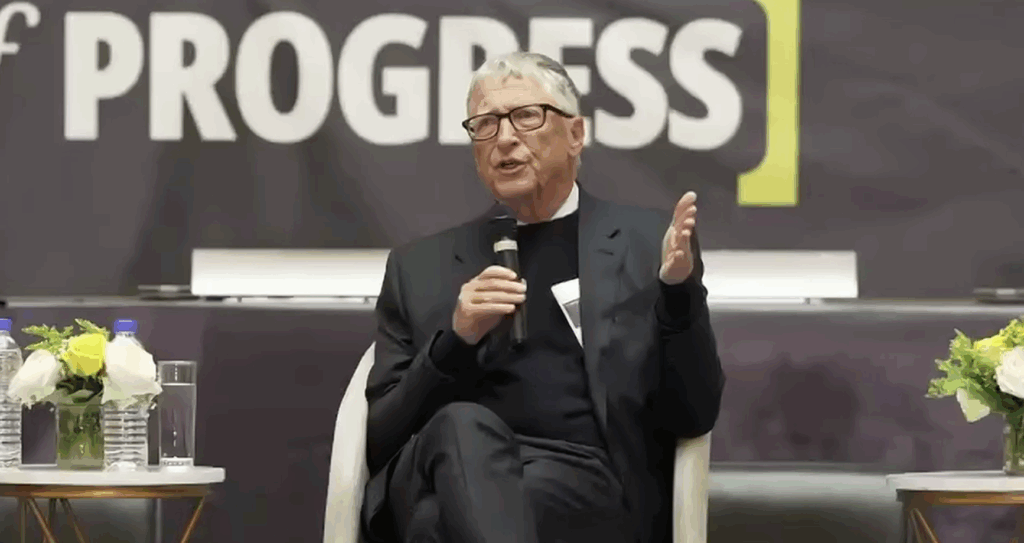
“The ‘demographic dividend’ – a youth bulge, less people on pensions and more people in the workforce – all presupposes that the health and education of those children is strong enough.
“If you fix a kid’s nutrition when they’re five or six, it’s too late. You really need to get there at the early stages. We have a lot of tools that are very cheap, that are already available, and we’re doing more to understand malnourishment because, in a way, you could put that even above malaria or any other disease as the worst thing that healthcare has to solve.”
Great leadership
Reflecting on some of the Foundation’s key accomplishments and challenges over the past 25 years, Bill Gates focussed on partnerships that bring about real change.
“It was in 1996 that President Mandela and the organization that would become the African Union launched the Kick Polio Out of Africa campaign,” he said.
“The number of cases has come down worldwide. In 1995, we had 60,000. Now, we’re under 1,000.
“Polio looked very difficult to get rid of in Nigeria, and it was only through great leadership, of people like Dr Muhammad Pate, who’s now the Minister of Health there, that this was successful.
“I partnered with generous leaders like Aliko Dangote, to work with the traditional and religious leaders, throughout the country, but particularly in the north, to get the word out about the importance of the polio vaccine.”
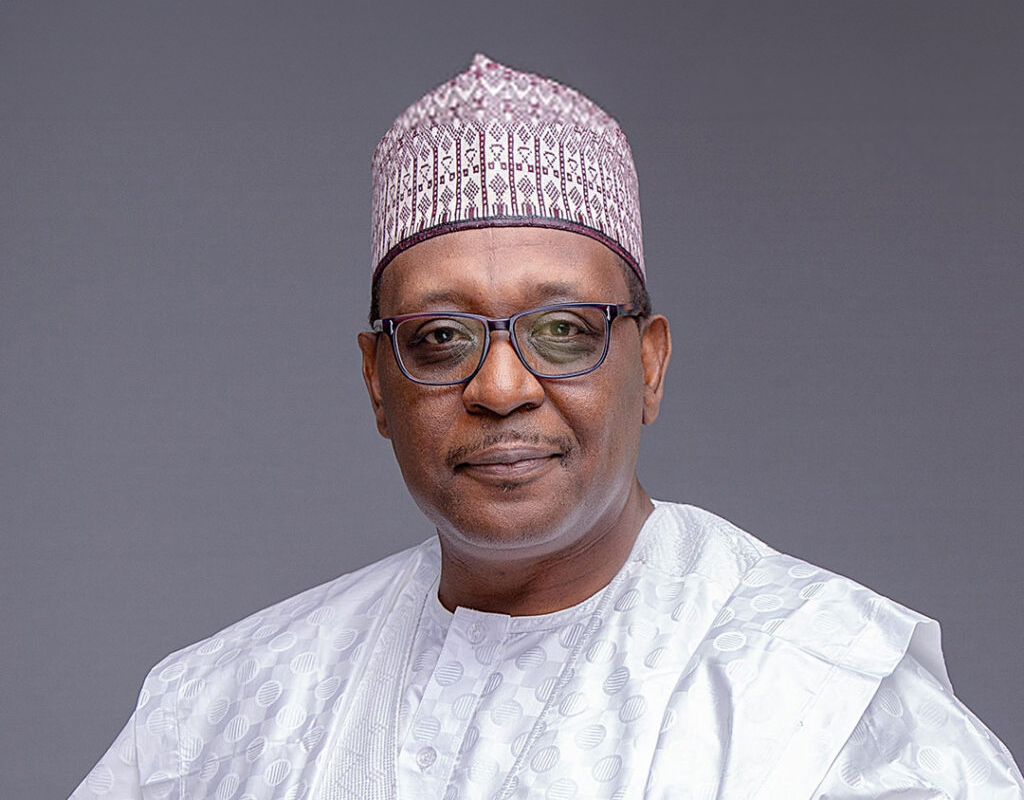
REACH Network Co-chair, Dr Muhammad Ali Pate
